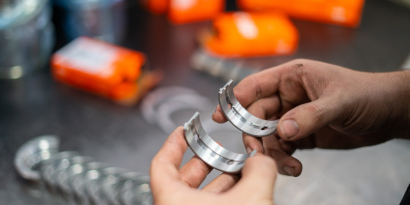Is it possible to use Artificial Intelligence in auto repair shops?
Technology is advancing rapidly, transforming how we consume, produce, and deliver services across different sectors. In the automotive world, the arrival of artificial intelligence (AI) marks a new era and paves the way for a more efficient future for repair shops of all sizes. Intelligent tools, automated systems, and smart processes are now redefining the landscape—bringing benefits to both professionals and customers alike.
In this article, you will learn how AI is positively impacting auto repair shops in Brazil, making diagnostics more reliable, preventing unexpected failures, increasing team productivity, and creating personalized customer service for every type of driver.
Artificial intelligence in auto repair shops: precision, agility, and personalized service
Artificial intelligence goes far beyond being just a technological helper. With systems capable of processing huge volumes of data from vehicle sensors, onboard computers, and maintenance histories, repair shops can now rely on much faster and more accurate diagnostics.
When cars present a problem, AI is able to cross-reference all relevant information in seconds and pinpoint the source of the issue with high accuracy. This reduces rework, avoids common errors, and enables quick resolutions—saving money both for customers and the shops themselves.
Another essential advantage is the automation of repetitive processes. AI-powered robots already perform tasks like wheel alignment, tire balancing, and electrical system tests. This automation frees up human professionals for more complex care, improving overall service quality.
Predictive maintenance is another highlight of this technological movement. With sensors monitoring the real-time condition of vehicle components and AI analyzing estimated wear and tear, it is possible to anticipate parts degradation such as piston rings, engine bearings, valve springs, and more. The AI suggests interventions before breakdowns occur or performance is compromised, increasing the vehicle’s lifespan and owner satisfaction.
AI-based assistant systems also help improve customer relationships. They answer questions, send maintenance reminders, provide estimated repair costs, and even schedule appointments autonomously. This streamlines service flow and strengthens trust with customers.
Advantages of artificial intelligence for managers and mechanics
Implementing AI in repair shops provides benefits beyond the end customer. Business owners gain significant administrative advantages, maintaining competitiveness through efficient and innovative processes. The main benefits include:
- Inventory organization and logistical control: Smart systems predict when parts like valve guides, pistons, gaskets, and bearings need to be restocked, optimizing material flow within the shop.
- Simplified administrative routines: Service scheduling, warranty management, and financial control become easier with software that learns the workshop’s workflow.
- Staff training: By analyzing failures and diagnostics, AI suggests targeted training programs based on the real needs of your technical team.
- Equipment monitoring: The technology monitors machine performance and recommends preventive maintenance, reducing unexpected downtime and associated losses.
Frequently asked questions about artificial intelligence in auto repair shops
1. Does adopting artificial intelligence bring immediate benefits for small repair shops?
Yes, even small businesses can use simple AI solutions for diagnostics, customer service, and information management. Gains in speed and error reduction can be noticed quickly.
2. Do professionals need special training?
Working with AI-based systems does require updating skills related to digital technology and processes. Investing in staff training is important to ensure you maximize the benefits of these resources.
3. Can AI replace human labor?
AI tends to take over operational and repetitive tasks, while human roles shift to creative activities, detailed analysis, and customer interaction. This results in transformation—not elimination—of jobs.
4. Which parts benefit from AI-powered predictive maintenance?
Items such as valve springs, piston rings, bearings, valve lifters, pistons, and gaskets are examples of components monitored in real time whose lifespan can be extended with correct technology application.
And you, expert—are you already using AI in your auto shop?
Artificial intelligence in auto repair shops is setting a new standard, combining technical excellence, speed, and attention to the expectations of the modern customer. By investing in these solutions, shops increase their efficiency, extend the service life of vehicles they handle, and stand out in an ever more competitive market.
If you want your shop to always offer the best in precision and innovation, rely on RIO’s complete portfolio. We are a reference in high-quality automotive parts—from cylinder liners, valve guides, and seats, to pistons, bearings, and complete kits—all manufactured with cutting-edge technology. Learn more about the best solutions for your shop and how RIO can help your business grow with technology, safety, and confidence!
Contact us and discover how to bring RIO’s innovation to the heart of your workshop.





